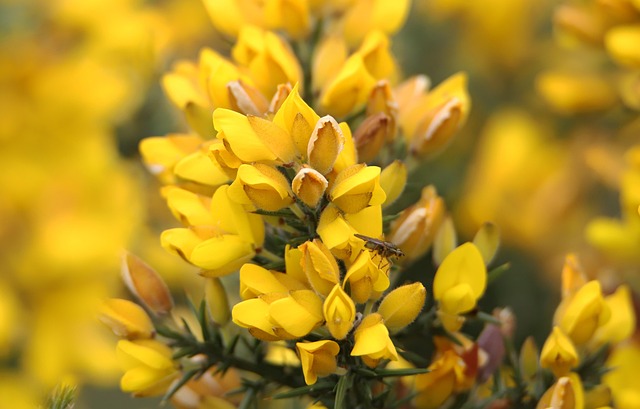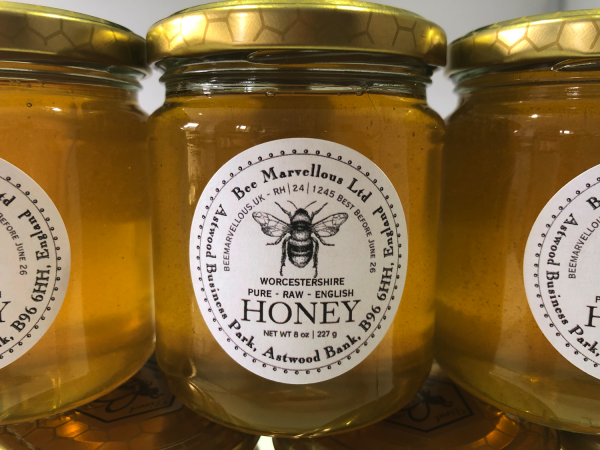
In an era where environmental consciousness is paramount, the humble jar of honey represents more than just a sweet treat; it embodies a commitment to sustainability, biodiversity, and community support. Local wildflower honey, particularly from the verdant landscapes of the United Kingdom, stands out as a prime example of how mindful sourcing can harmonise human needs with nature’s rhythms. This article explores the intricacies of sustainable sourcing for wildflower honey, delving into the practices that ensure its purity, the ecological benefits it brings, and why opting for locally produced varieties is a choice worth making.
Understanding Wildflower Honey and Its Unique Appeal
Wildflower honey, often referred to as multifloral honey, is derived from the nectar collected by bees from a diverse array of blooming plants, including wildflowers, trees, and hedgerows. Unlike single-varietal honeys such as heather or acacia, which come from predominant floral sources, wildflower honey captures the essence of an entire ecosystem. In the UK, this results in a rich, complex flavour profile that varies by region and season—think subtle notes of clover, blackberry blossom, and lime tree, all mingling to create a symphony of tastes that reflect the countryside’s natural bounty.
The appeal of wildflower honey lies not only in its delectable flavour but also in its raw, unadulterated form. When sourced sustainably, it is typically unheated and only coarsely filtered, preserving essential enzymes, pollen, and antibacterial properties that contribute to its health benefits. These include aiding digestion, boosting immunity, and providing a natural energy source. For consumers seeking authenticity, local wildflower honey offers a direct connection to the land, evoking the rolling hills, lush pastures, and winding streams of areas like Worcestershire, where bees thrive amidst a tapestry of wild flora.
The Principles of Sustainable Sourcing in Beekeeping
Sustainable sourcing begins with ethical beekeeping practices that prioritise the wellbeing of bees and the preservation of their habitats. In the UK, where bee populations face threats from habitat loss, pesticides, and climate change, responsible beekeepers adopt methods that mitigate these risks. This involves maintaining apiaries in natural, pesticide-free zones, such as the fields and woodlands of Worcestershire, where bees can forage freely without exposure to harmful chemicals.
One key aspect is rotational foraging, where hives are placed in locations that allow bees to access a variety of nectar sources throughout the year. This not only ensures a balanced diet for the bees but also supports pollination services that are vital for local agriculture and biodiversity. Sustainable beekeepers often operate on a small scale, producing honey in limited batches to avoid overharvesting. This approach contrasts sharply with industrial operations that may import honey or blend it with inferior products, diluting its quality and environmental credentials.
Furthermore, sustainability encompasses the entire supply chain. From hive to jar, ethical producers minimise processing to retain the honey’s natural integrity. Unheated honey, for instance, avoids the pasteurisation that can destroy beneficial compounds, while coarse filtering allows traces of pollen and wax to remain, enhancing its nutritional value. In regions like Worcestershire, beekeepers often integrate their operations with conservation efforts, such as planting wildflower meadows or collaborating with local farmers to create bee-friendly landscapes. These practices not only safeguard bee colonies but also contribute to carbon sequestration and soil health, making wildflower honey a truly eco-friendly choice.
Environmental and Community Benefits of Local Sourcing
Choosing sustainably sourced local wildflower honey yields profound environmental benefits. Bees are indispensable pollinators, responsible for one-third of the food we consume, and supporting local beekeepers helps bolster declining populations. In the UK, initiatives like those in Worcestershire’s countryside promote habitat restoration, countering the effects of urbanisation and intensive farming. By foraging in diverse wild areas, bees enhance plant reproduction, fostering resilient ecosystems that support wildlife from butterflies to birds.
On a community level, local sourcing strengthens rural economies. Small-scale producers, often passionate individuals with apiaries scattered across picturesque locales, reinvest in their areas through pollination services, beeswax products, and educational outreach. Purchasing from these sources reduces the carbon footprint associated with long-distance transport, as honey travels mere miles from hive to home rather than across oceans. For residents in places like Redditch or Bromsgrove, this means access to fresh, seasonal honey that captures the year’s floral variations, while supporting livelihoods that preserve traditional skills.
Health-wise, local wildflower honey offers advantages over mass-produced alternatives. Its raw state preserves antioxidants and anti-inflammatory properties, potentially alleviating allergies by exposing consumers to regional pollens. Moreover, it serves as a versatile addition to diets—drizzled over yoghurt, stirred into tea, or used in baking—providing a natural alternative to refined sugars.
Challenges and Best Practices in UK Beekeeping
Despite its merits, sustainable beekeeping in the UK faces hurdles. Varroa mites, colony collapse disorder, and unpredictable weather patterns pose ongoing threats, requiring beekeepers to employ integrated pest management without resorting to harsh chemicals. Best practices include regular hive inspections, queen bee breeding for resilience, and overwintering strategies that ensure colony survival.
In Worcestershire, a region blessed with fertile soils and mild climates, beekeepers exemplify these approaches. Operating amidst streams, rivers, and ancient hedgerows, they produce honey that epitomises purity and locality. Opting for small jars—such as 250g or 454g sizes—allows for mindful consumption, reducing waste and encouraging appreciation of each spoonful. Consumers can identify sustainable options by looking for labels that highlight raw processing, local origins, and minimal intervention, ensuring the honey remains a true reflection of its environment.
Embracing Sustainable Honey in Everyday Life
Incorporating sustainably sourced local wildflower honey into daily routines is a simple yet impactful way to support environmental stewardship. Whether used as a natural sweetener, a skincare ingredient, or a gift that shares the taste of the British countryside, it invites a deeper connection to nature. By choosing products from dedicated UK producers, particularly those nestled in Worcestershire’s heart, consumers contribute to a cycle of sustainability that benefits bees, landscapes, and communities alike.
In essence, the sustainable sourcing of local wildflower honey is a testament to harmonious living with nature. It celebrates the UK’s floral diversity, upholds ethical standards, and delivers unparalleled quality. For those eager to experience this firsthand, exploring offerings from Worcestershire-based artisans promises a journey into the pure, fresh essence of English honey—nature’s finest, straight from the hive.
Honey – Natural, Local, Fresh, Raw and Pure English Honey For Sale Online From Bee Marvellous Ltd Based in Worcestershire UK
- The Environmental Superiority of Local Honey: A Sustainable Choice for Our Planet - 12 October 2025
- The Sustainable Sourcing of Local Wildflower Honey: A Deep Dive into Ethical Beekeeping Practices - 8 October 2025
- The Differences Between Local and Shop-Bought Honey: A Comprehensive Exploration - 7 October 2025
